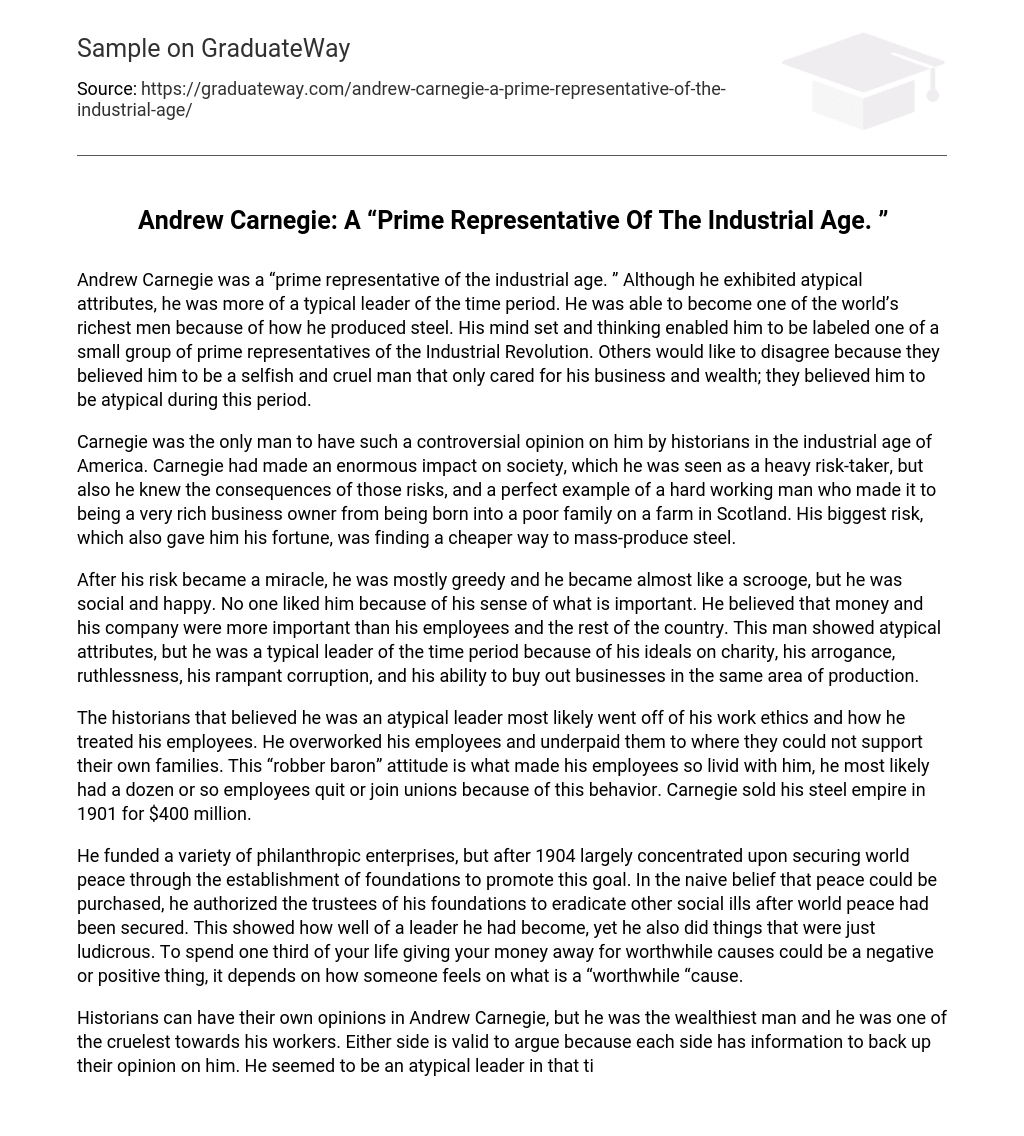Andrew Carnegie was a “prime representative of the industrial age. ” Although he exhibited atypical attributes, he was more of a typical leader of the time period. He was able to become one of the world’s richest men because of how he produced steel. His mind set and thinking enabled him to be labeled one of a small group of prime representatives of the Industrial Revolution. Others would like to disagree because they believed him to be a selfish and cruel man that only cared for his business and wealth; they believed him to be atypical during this period.
Carnegie was the only man to have such a controversial opinion on him by historians in the industrial age of America. Carnegie had made an enormous impact on society, which he was seen as a heavy risk-taker, but also he knew the consequences of those risks, and a perfect example of a hard working man who made it to being a very rich business owner from being born into a poor family on a farm in Scotland. His biggest risk, which also gave him his fortune, was finding a cheaper way to mass-produce steel.
After his risk became a miracle, he was mostly greedy and he became almost like a scrooge, but he was social and happy. No one liked him because of his sense of what is important. He believed that money and his company were more important than his employees and the rest of the country. This man showed atypical attributes, but he was a typical leader of the time period because of his ideals on charity, his arrogance, ruthlessness, his rampant corruption, and his ability to buy out businesses in the same area of production.
The historians that believed he was an atypical leader most likely went off of his work ethics and how he treated his employees. He overworked his employees and underpaid them to where they could not support their own families. This “robber baron” attitude is what made his employees so livid with him, he most likely had a dozen or so employees quit or join unions because of this behavior. Carnegie sold his steel empire in 1901 for $400 million.
He funded a variety of philanthropic enterprises, but after 1904 largely concentrated upon securing world peace through the establishment of foundations to promote this goal. In the naive belief that peace could be purchased, he authorized the trustees of his foundations to eradicate other social ills after world peace had been secured. This showed how well of a leader he had become, yet he also did things that were just ludicrous. To spend one third of your life giving your money away for worthwhile causes could be a negative or positive thing, it depends on how someone feels on what is a “worthwhile “cause.
Historians can have their own opinions in Andrew Carnegie, but he was the wealthiest man and he was one of the cruelest towards his workers. Either side is valid to argue because each side has information to back up their opinion on him. He seemed to be an atypical leader in that time period according to most historians though. They did also presume he was a good representative in the industrial age. Even with his unforgivable mistreatment of workers, he is still the father of steel in American culture.





